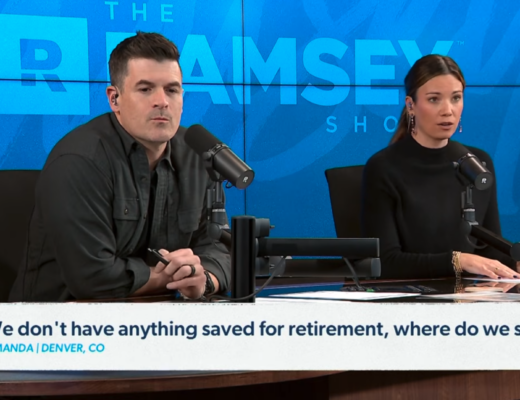Now here’s where it gets interesting. The market rate for this position was only $75,000-$85,000 annually, creating a massive gap between what this person was used to earning and what was actually justified. The new owner was considering examining the employee’s personal finances to determine compensation, driven by a desire to “be a good guy.”
This approach is fundamentally flawed. As Dave Ramsey pointed out, compensation should never be based on someone’s personal financial situation or debt load. It should be determined by two factors only:
- The market rate for the position
- The value the employee brings to the organization
At Ramsey Solutions, they review candidate budgets during the hiring process not to determine pay, but to ensure candidates can live on the offered salary. This prevents people from going into debt because they took a job that couldn’t support their needs.
The Danger of Emotional Decision-Making
What struck me most was how the business owner’s compassion was potentially leading him toward a decision that would damage both his business and the relationship. By paying above market rate out of guilt or obligation, he would likely grow resentful over time.
The caller admitted that from a pure business perspective, he’d rather hire someone else and train them. This honest admission revealed the truth: he was considering an unsustainable arrangement based on personal feelings rather than sound business judgment.
“Don’t go any more than that. And for that reason, I wouldn’t be digging in too much of this guy’s stuff. Because then it’s gonna feel like you’re trying to pull a fast one on him… I wanna treat him like I would any other person who is applying for this job. Give him that dignity.”
This advice resonated with me because I’ve seen similar situations play out. When we blur the lines between personal relationships and business decisions, we often end up with compromised outcomes that serve neither party well.
Setting Healthy Boundaries
The most valuable takeaway from this exchange was about setting boundaries. Kindness in business doesn’t mean making poor financial decisions. In fact, true kindness often requires the courage to establish clear parameters.
In this case, the healthiest approach would be:
- Offer market-rate compensation based on the position’s value
- Create incentives tied to business growth and performance
- Treat the employee with the same dignity and standards as any other hire
This framework allows for fairness while maintaining business sustainability. It also gives the employee agency in their financial future through performance-based incentives.
I believe many business owners fall into this trap of overcompensating out of guilt or obligation. We want to be seen as “good people” who take care of others. But when this impulse leads us to make unsound business decisions, we’re not actually serving anyone well in the long run.
The most compassionate approach is often the most straightforward one: clear expectations, fair market compensation, and opportunities for growth based on performance. This creates a sustainable relationship where both parties can thrive without resentment or entitlement.
The next time you face a similar decision, remember that true kindness in business includes honesty about what’s sustainable. Your business needs to remain healthy to provide opportunities for everyone involved. Sometimes the most caring decision is simply to maintain appropriate boundaries.
Frequently Asked Questions
Q: Should personal financial situations ever factor into compensation decisions?
No. Compensation should be based on market rates and the value an employee brings to the organization. Considering personal financial situations can lead to unfair compensation practices and resentment. The only exception is ensuring a candidate can live on the offered salary to prevent them from going into debt.
Q: How can business owners balance compassion with sound business decisions?
True compassion in business means creating sustainable relationships through fair market compensation, clear expectations, and performance-based growth opportunities. Making unsound financial decisions out of guilt or obligation ultimately harms both the business and the relationship.
Q: What’s the best approach when hiring someone you have a personal relationship with?
Treat them with the same standards and expectations as any other employee. Remove the personal history from the equation when making business decisions, and establish clear boundaries between your personal relationship and your professional one.
Q: How should incentives be structured for employees who previously owned their business?
Base compensation on market rates for the position, then create incentives tied directly to business growth and performance. This allows the employee to increase their earnings by contributing to the company’s success, creating alignment between their goals and the organization’s objectives.







